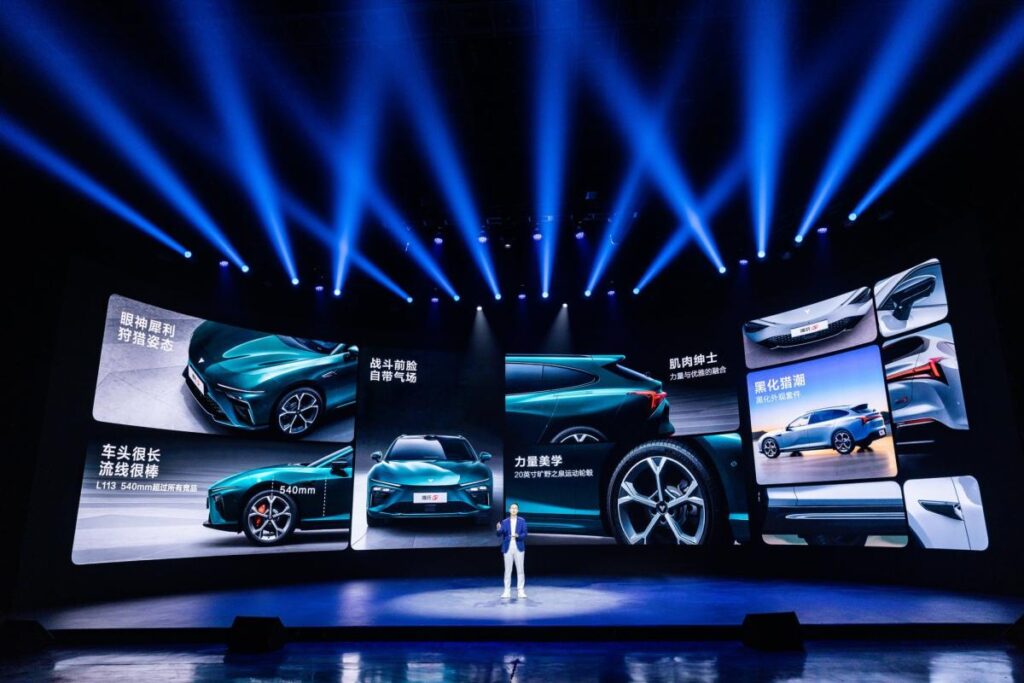China’s automotive industry Statistics show an interesting trend is underway among the country’s largest manufacturers: plug-in hybrid cars are winning over pure electric vehicles (EVs) among consumers as drivers look to overcome range and cost concerns.
Hybrid cars, which can travel short distances on battery power and switch to gasoline for longer journeys, will account for nearly half of new electric car sales this year, with several manufacturers accelerating development and production to meet growing demand.
BYD, Volkswagen, Toyota and their peers sold 396,000 hybrid cars to mainland buyers in July, accounting for 45.1 percent of total EV deliveries, according to data released by the China Passenger Car Association (CPCA). Their share rose from 34.3 percent in the same month last year.
Do you have questions about the biggest topics and trends from around the world? Get the answers with SCMP knowledgeour new platform featuring carefully curated content with explanations, FAQs, analyses and infographics, brought to you by our award-winning team.
“Hybrid cars are more fuel-efficient for many young, first-time car buyers,” said Zhao Zhen, sales director at Shanghai dealership Wan Zhuo Auto. “They’re a surprise beneficiary of an economic slowdown.”
Chinese consumers have become more cautious about spending, leading to meager gains in retail sales in the years since the pandemic, official data show. A years-long housing crisis and mounting job losses have prompted many to prepay their mortgages, reducing debt rather than increasing spending.
Retail spending rose 3.7 percent to 23.6 trillion yuan (US$3.3 trillion) in the first six months of this year, lagging the national economic growth of 5 percent. It was also about half the 7.2 percent pace recorded in 2023.
Hybrid cars, including electric vehicles, also benefit from government incentives, including an exemption from the 10 percent consumption tax and subsidies for replacing gasoline-powered cars as part of Beijing’s long-term clean energy and net-zero emissions drive.
Dealers said many buyers opted for hybrid cars amid growing concerns about battery drain in winter. Video clips of dozens of electric vehicles stuck in a snowstorm in central Hubei province during the Chinese New Year went viral in February after their batteries ran out.
The incident has fueled fears among car buyers that all-electric vehicles are still not reliable for long distances.
Some hybrid models from automakers have appealed to consumers because of their price and long range, putting pressure on traditional automakers like Volkswagen and General Motors.
BYD, the world’s best-selling EV assembler, unveiled a new and improved version of its plug-in hybrid technology in May in a bid to boost electric vehicle adoption.
The Qin L and Seal 06, two of the upgraded models equipped with the “dual mode” technology, can travel up to 2,100 km on a single charge with a full tank of petrol, the company claimed. The batteries used to power the base versions offer a range of just 80 km.
The entry-level Qin L and Seal 06 both cost 99,800 yuan, compared with the VW Sagitar’s 127,900 yuan and the Toyota Corolla’s 116,800 yuan. Fuel consumption, when the batteries are empty, is a record low of 2.9 liters per 100km, BYD says.
Hozon New Energy Automobile will launch a station wagon-style vehicle with an extended range that can reach a range of up to 1,200 km on August 25. Photo: Handout alt=Hozon New Energy Automobile will launch a station wagon-style vehicle with an extended range that can reach a range of up to 1,200 km on August 25. Photo: Handout>
Some analysts see this as a passing trend. The appeal of pure EVs will only grow under national efforts toward zero emissions, said Davis Zhang, a senior executive at Suzhou Hazardtex, a supplier of specialty batteries.
“Pure electric cars reflect the trend of the future of mobility amid the global goal of carbon neutrality,” he added. “Hybrid sales will not sustain their growth momentum in the long term. It is advisable for major players to continue focusing on making fully electric cars.”
At least three Chinese electric carmakers announced this month that they plan to use hybrid technology to develop new models to meet consumer demand.
Hozon New Energy Automobile, the Chinese start-up preparing for a Hong Kong IPO, this week launched the Neta S, a longer-range variant that can drive up to 1,200km on a single charge.
Stronger demand for hybrids over pure electric vehicles is not unique to China. According to data from research firm Autovista, they accounted for 60 percent of new electric car sales globally in May. Sales of hybrids and pure electric cars in China account for about 65 percent of global sales.
This article originally appeared in the South China Morning Post (SCMP)the most authoritative voice covering China and Asia for over a century. For more SCMP stories, explore the SCMP app or visit the SCMP’s Facebook And Twitter pages. Copyright © 2024 South China Morning Post Publishers Ltd. All rights reserved.
Copyright (c) 2024. South China Morning Post Publishers Ltd. All rights reserved.

